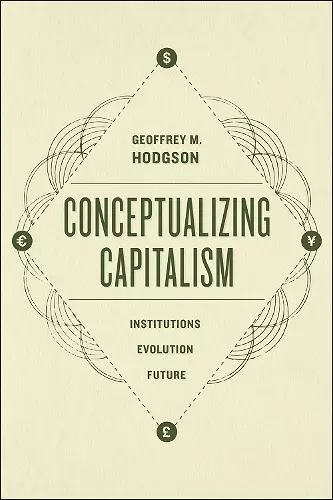Conceptualizing Capitalism – Institutions, Evolution, Future
Format:Hardback
Publisher:The University of Chicago Press
Published:30th Jun '15
Currently unavailable, and unfortunately no date known when it will be back

A few centuries ago, capitalism set in motion an explosion of economic productivity. Markets and private property had existed for millennia, but what other key institutions fostered capitalism's relatively recent emergence? Until now, the conceptual toolkit available to answer this question has been inadequate, and economists and other social scientists have been diverted from identifying these key institutions. With Conceptualizing Capitalism, Geoffrey M Hodgson offers readers a more precise conceptual framework. Drawing on a new theoretical approach called legal institutionalism, Hodgson establishes that the most important factor in the emergence of capitalism - but also among the most often overlooked - is the constitutive role of law and the state. While private property and markets are central to capitalism, they depend upon the development of an effective legal framework. Applying this legally grounded approach to the emergence of capitalism in eighteenth - century Europe, Hodgson identifies the key institutional developments that coincided with its rise. That analysis enables him to counter the widespread view that capitalism is a natural and inevitable outcome of human societies, showing instead that it is a relatively recent phenomenon, contingent upon a special form of state that protects private property and enforces contracts. After establishing the nature of capitalism, the book considers what this more precise conceptual framework can tell us about the possible future of capitalism in the twenty-first century, where some of the most important concerns are the effects of globalization, the continuing growth of inequality, and the challenges to America's hegemony by China and others.
"In standard economics, capitalism has become an ill-defined concept, its analysis flawed from the very initial definition. Hodgson's book reintroduces a sharp and precise definition, showing how a successful analysis of capitalism requires an understanding of the interactions of numerous complementary institutions, including sophisticated legal institutions. This is a remarkable and highly original piece of interdisciplinary scholarship that will greatly contribute to the understanding of contemporary capitalist economies." (Ugo Pagano, University of Siena and Central European University)
ISBN: 9780226168005
Dimensions: 233mm x 160mm x 34mm
Weight: 828g
456 pages